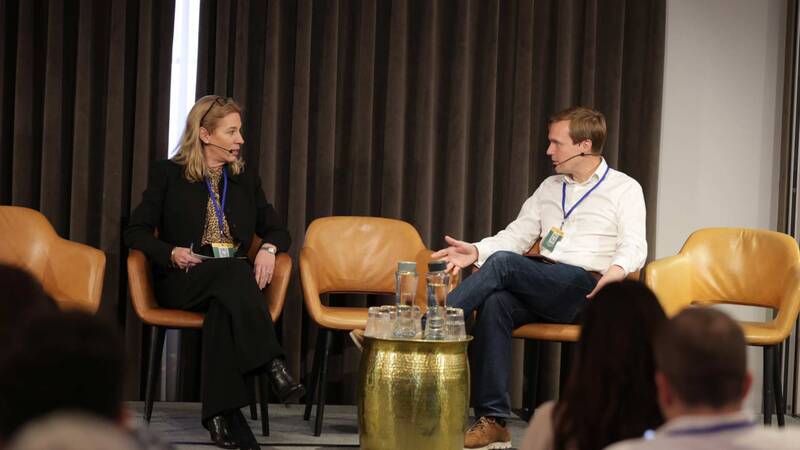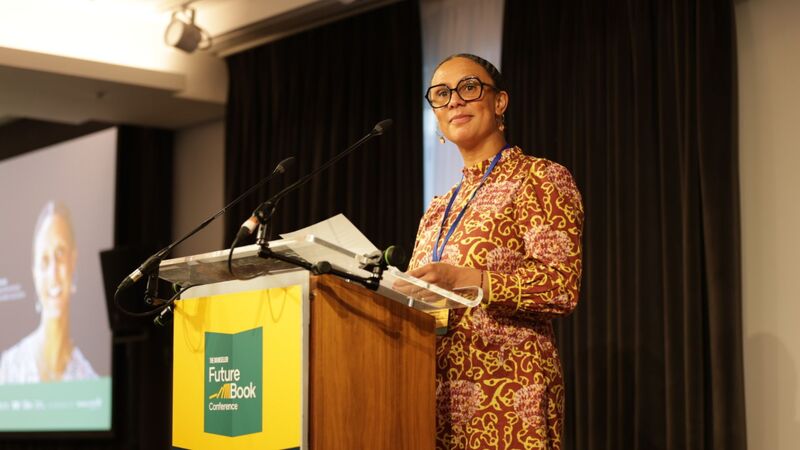You are viewing your 1 free article this month. Login to read more articles.
True colours
In the taxi back from this year’s British Book Industry Awards, I was in a reflective and sombre mood. Pavilion Books had been shortlisted for four awards and our publisher Tina Persaud had triumphed over a highly competitive field, winning Editor of the Year. So, as the old joke goes, why the long face?
I have always been critical of how we, as an industry, are the first to proclaim that the advent of any given new technology is evidence that the book is outdated, finished, and that we are all going to hell in the proverbial handcart. And yet there we all were, celebrating our successes as an industry, all pretty much still standing some 10 years after the last print killer, the Kindle, was launched to an excited public.
After all, this is an incredible, robust and enduringly successful business that has coped with massive technological disruptions with remarkable alacrity, nimbleness and farsightedness. We are one of the biggest creative industries in the UK which, combined, contributes over 5% to the value of the UK economy. The publishing industry alone employs over 230,000 people and book publishing generated revenue of £3.3bn in 2015, of which 43% (£1.4bn) comes from sales to overseas markets.
Still, after that wonderful and convivial evening where we shared our successes and celebrated a return to growth and confidence in our industry, I thought that there was a weakness we need to address. This preoccupied my thoughts on the journey home. It is that we present ourselves as being far less than the sum of our many and varied parts, and that the awards reflect the obsession we have, as an industry, with one small segment of this business: fiction represents around 17% of recorded book sales—less still if one considers the unrecorded and burgeoning market beyond the bookstore for primarily non-fiction and illustrated titles.
And yet at the awards, it was fiction and their publishers that prevailed in six of the seven major award categories: Publisher, Imprint, Independent Publisher, Publicity Campaign, Marketing Campaign and Book of the Year all went to novels or publishers of (predominantly) fiction. The shortlists for these categories were not much more diverse: 33 of the 46 shortlistees were individuals or companies engaged primarily in the publication of novels; that’s 72%, representing a category that is less than 20% of the industry.
My point is this—it’s not sour grapes, really; the bad taste in my mouth is, I’m quite certain, due to Grosvenor House’s dodgy wine list (only joking, Grosvenor, the wine was as delicious as it was overpriced)—the scorecard of the annual awards ceremony is not only not reflective of the book business as an industry. It reflects the skewed view we have of ourselves, which we present to the world at large.
My concern is less focused on the awards—The Bookseller has improved them enormously since the evening’s nadir a decade or so ago, when we tried to become relevant by getting on the telly. It is more that the imbalance described by the analysis of this year’s ceremony is symptomatic of a wider malaise within the industry as a whole. Both publishing and retail conflate the words “book” and “novel” and spend a disproportionate amount of time, thought and energy on what is after all a modest segment of our great industry.
It’s easy to understand, regrettable though it undoubtedly is, that the public, press and media are drawn towards the dazzle of the roulette-table economics of fiction publishing. But we, as custodians of this industry, should not be participating in this reduction of our business’ importance and impact in the commercial world. Rather, we should focus on promoting the industry’s enduring commercial contribution to UK plc.
All this matters because we face a variety of external threats which are only made stronger by the impression (to which I think we’re culpable of contributing) of being more focused on the cocktail-party chatter that certain kinds of books generate rather than their bottom-line contribution.
That impression only serves to exacerbate the threats that surround the business of selling books. We don’t have far to look to find these threats: predatory growth from competitors in the expanding arena of content distribution; new legislation on the “representation in 2D of design objects”, with a timetable that shows a seemingly wilful disregard of the dynamics of our industry; and the unjustified, retrospective attempt to apply VAT, via the back door, on the legitimate, massively successful and, indeed, print-reviving phenomenon of colouring books for adults. This year colouring, next year...?
Faber c.e.o. Stephen Page, in a speech recently reported upon in these pages, is to be congratulated for raising the issue of the London-centricity of publishing and the “toe-curling” degree to which it is a white, middle-class and male business. But my point here is that this is not the only imbalance from which this industry suffers. Unlike the undoubted personnel imbalance, our product and market diversity is one of this business’ amazing strengths and we weaken the industry and its standing in a fiercely competitive and at times hostile world if we cannot find more ways to celebrate and champion that diversity as well.
David Graham is m.d. of Pavilion Books.
















